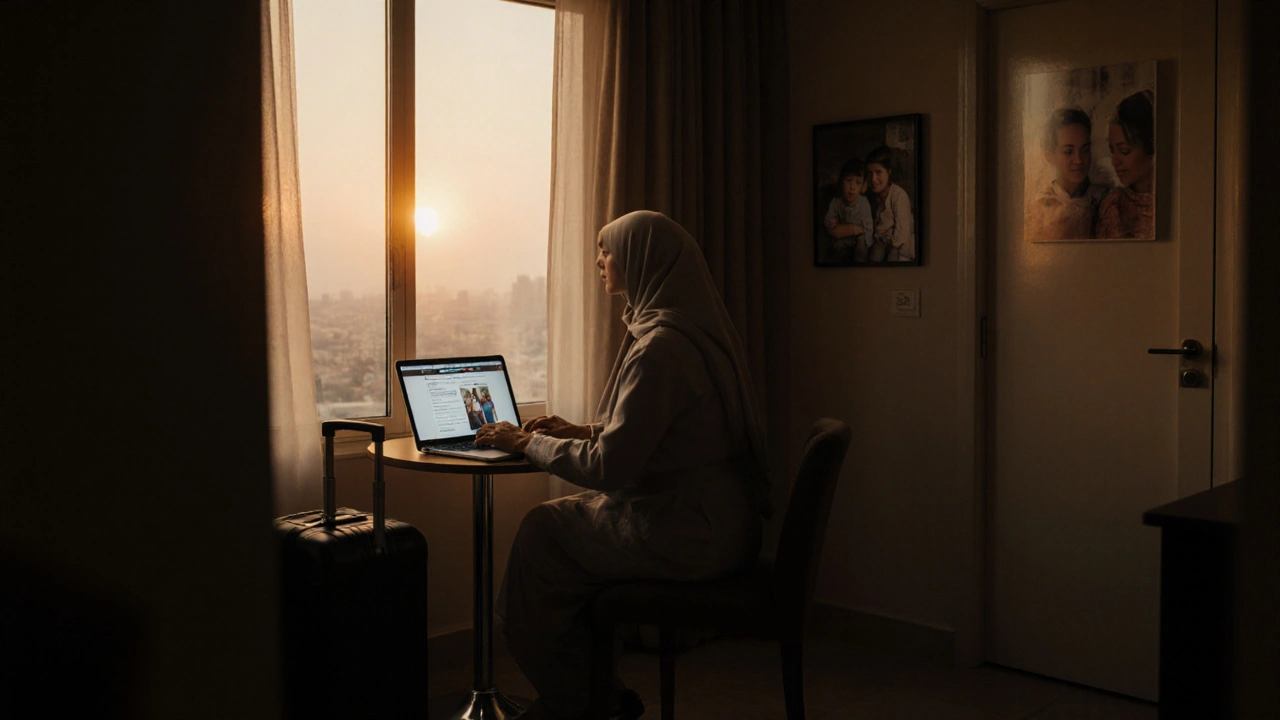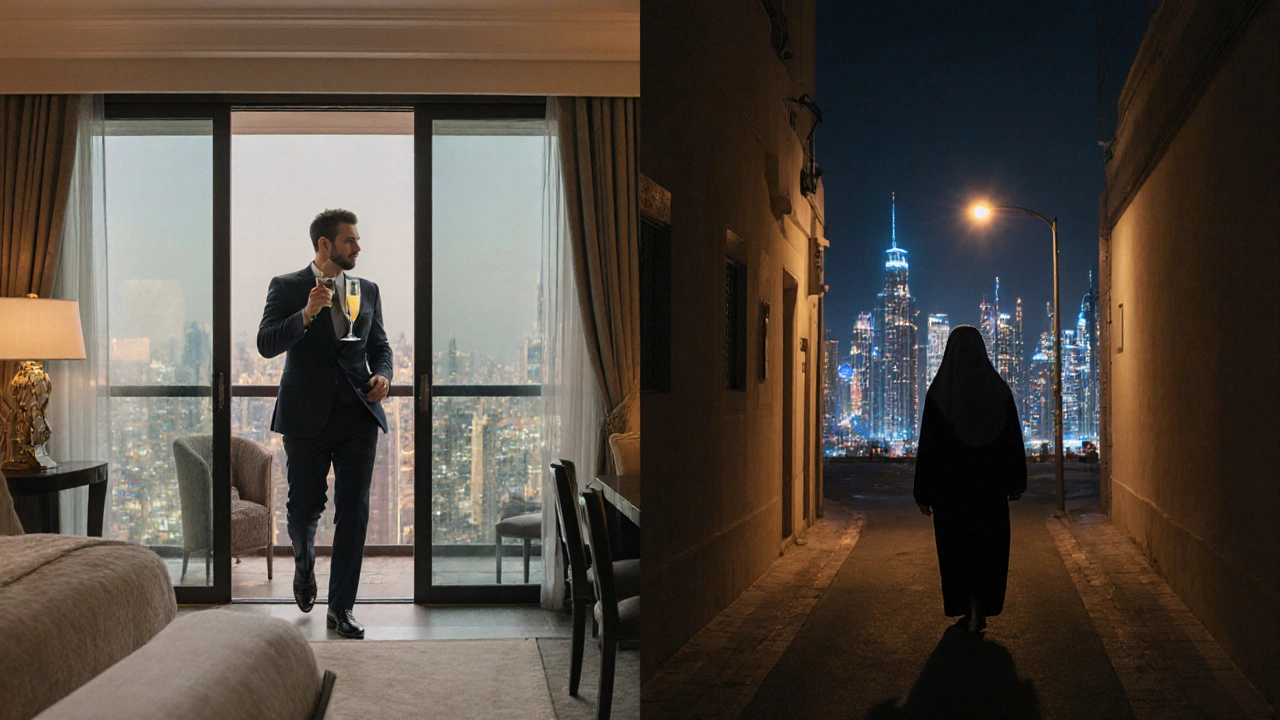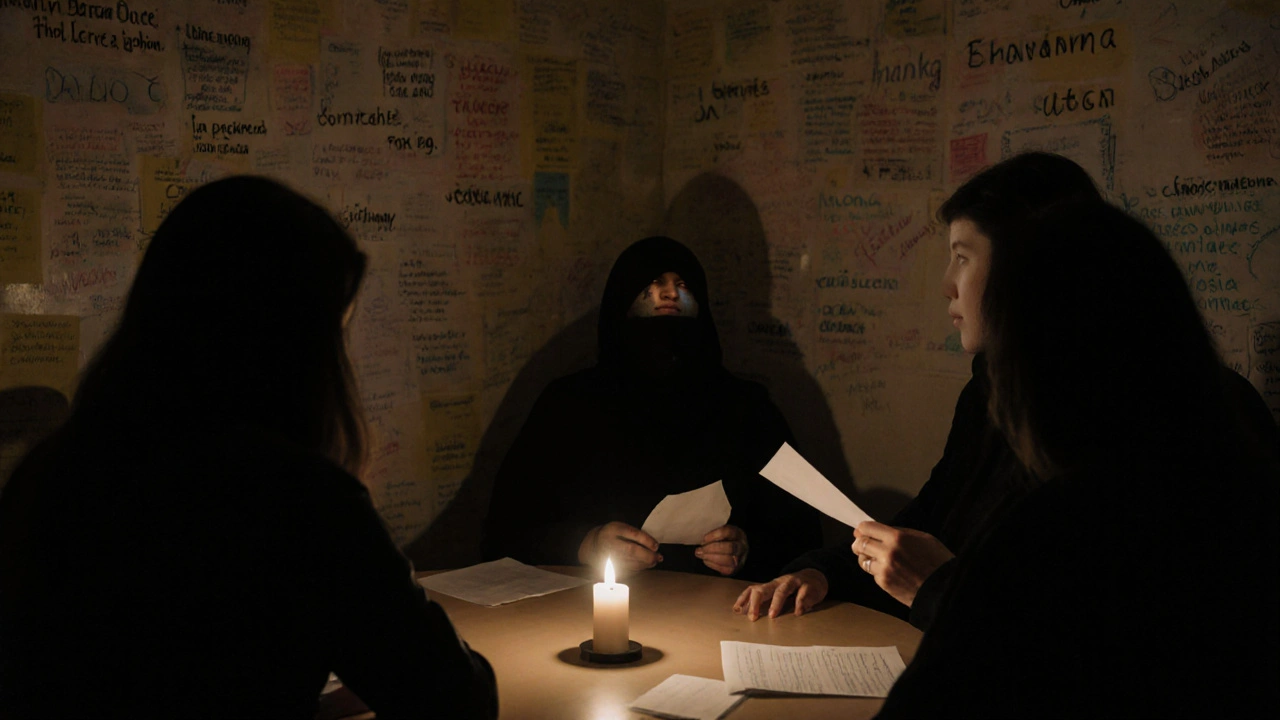Cultural Contexts: Understanding Stigma Around Adult Work in Dubai

People often assume that Dubai is just about luxury malls, desert safaris, and five-star hotels. But beneath the glitter, there’s a quiet, heavy silence around one topic: adult work. If you’ve ever seen an ad for independent escorts on AdultWork Dubai or heard whispers in expat circles, you know it exists. Yet no one talks about it openly. Why? The answer isn’t just about laws-it’s about culture, religion, and survival.
It’s Illegal, But It’s Everywhere
Dubai’s legal code is clear: prostitution and sex work are criminal offenses under Article 357 of the UAE Penal Code. Anyone caught engaging in or facilitating sex work can face jail time, fines, or deportation. Foreign workers-especially those on dependent visas-risk losing their right to live in the country entirely. Yet, despite this, adult work thrives in plain sight. Apartments in Jumeirah, private meetings in business hotels, discreet WhatsApp groups, and classified ads on platforms like AdultWork Dubai don’t disappear because they’re illegal. They adapt.
Why doesn’t the government shut it down completely? The truth is, enforcement is selective. Tourists, expats, and high-income clients rarely face consequences. The ones who get caught are usually the workers-often women from Southeast Asia, Eastern Europe, or Africa who came for domestic jobs and ended up trapped. The system punishes vulnerability, not demand.
Why Is There So Much Shame?
Stigma doesn’t come from the law alone. It comes from culture. Dubai is built on conservative Islamic values, even if it looks Western on the surface. Public morality is tightly controlled. Talking about sex, especially paid sex, is seen as shameful-not just morally wrong, but socially dangerous. A woman who works in adult work is labeled as ‘lost,’ ‘immoral,’ or ‘broken.’ Her family is shamed. Her name is whispered in community groups. Even if she’s supporting her children back home, the narrative doesn’t change.
This shame isn’t unique to Dubai. It’s common across the Gulf. But in Dubai, the contrast is sharper. You walk past a $2,000-a-night hotel suite where a client is paying for an hour of companionship, then turn a corner and see a mosque with signs reminding people to guard their gaze. The disconnect isn’t ignored-it’s buried. People pretend it doesn’t happen. But it does.
Who Are the People Behind the Ads?
Most people assume adult work in Dubai is run by organized crime or human traffickers. That happens. But it’s not the whole story. Many women are single mothers who came to Dubai as nannies or cleaners. They earn $300-$500 a month in domestic jobs. Rent in Dubai eats half that. When their visa expires or their employer abuses them, they’re left with no options. Adult work becomes survival, not choice.
Others are students from Ukraine, Russia, or the Philippines who came to learn English or study business. They’re not looking for this life. But with no work permit, no savings, and no safety net, they turn to platforms like AdultWork Dubai because it’s the only way to pay rent and send money home. Some even use pseudonyms, build online profiles, and treat it like a freelance gig-because that’s what it feels like to them: a job.
They don’t wear flashy dresses or pose in luxury cars. Most work alone, meet in quiet apartments, and avoid social media. They’re not trying to be famous. They’re trying to stay alive.

The Double Standard
Here’s the part no one admits: Dubai’s economy depends on the very people it criminalizes. Tourists come for the nightlife, the clubs, the private parties. Expats host events where alcohol flows and boundaries blur. The city makes billions from tourism, yet treats the people who make that experience possible as criminals. A male client walks out of a hotel after paying $800 for an escort. He goes home to his wife and kids in London or Toronto. No one questions him. No one calls him immoral. But the woman he paid? She’s labeled a ‘prostitute’-a word that sticks to her forever.
Even in places where adult work is legal, like parts of Germany or the Netherlands, stigma remains. But in Dubai, there’s no legal safety net. No health checks. No labor rights. No way to report abuse without risking arrest. The stigma isn’t just social-it’s structural. It keeps people silent. And silence keeps the system running.
What Happens When Someone Gets Caught?
If a woman is arrested for sex work in Dubai, the process is brutal. She’s taken to a police station, fingerprinted, and held in a detention center with other undocumented migrants. Her passport is confiscated. Her employer is notified. If she’s on a dependent visa (say, as a spouse), her sponsor may cancel her residency immediately. She’s deported without warning, often with no money, no support, and no access to legal help.
Some are sent back to countries with no reintegration programs. One woman from Moldova told a human rights group she returned home with $40 in her pocket and no job. Her children didn’t recognize her. She had been gone for three years. She didn’t talk about why she left. No one asked.
Men who pay for sex? Rarely face consequences. If they’re foreign nationals, they’re usually just warned and let go. If they’re Emirati, the case is quietly buried. The law isn’t applied equally. It’s applied to the powerless.

Is There Any Hope for Change?
There are small signs. A few NGOs in Dubai, mostly run by expats and local activists, quietly offer legal aid and safe housing to women in adult work. They don’t advertise. They don’t seek media attention. They work through word of mouth, WhatsApp groups, and encrypted apps. They help women file labor complaints, escape abusive sponsors, or find safe housing.
Some women are starting to speak out-on anonymous blogs, in podcasts with fake voices, in letters to international human rights groups. They’re not asking for legalization. They’re asking for dignity. For the right to be seen as human, not a crime statistic.
Change won’t come from protests or petitions. It will come when people stop pretending this doesn’t happen. When expats stop laughing about ‘Dubai girls’ at dinner parties. When tourists stop googling ‘best escorts in Dubai’ before they land. When the system stops punishing the victims and starts asking why the demand exists.
It’s Not About Morality. It’s About Power.
At its core, the stigma around adult work in Dubai isn’t about religion or culture. It’s about control. Who gets to be seen? Who gets to be safe? Who gets to earn a living without being judged?
Dubai presents itself as a global city. But for thousands of women living on the edges, it’s a place where their bodies are used, their stories are erased, and their survival is treated as a crime. The real question isn’t whether adult work should be allowed. It’s whether we’re willing to see the people behind it-and stop pretending they don’t exist.
Is adult work legal in Dubai?
No, adult work is illegal in Dubai under UAE law. Both offering and paying for sexual services can lead to arrest, deportation, fines, or jail time. Enforcement is uneven, often targeting workers while clients face little to no consequences.
Why do women enter adult work in Dubai?
Many women come to Dubai for domestic jobs like cleaning or caregiving but face low wages, visa exploitation, or abuse. When they can’t pay rent or send money home, adult work becomes one of the few ways to survive. Others are students or undocumented migrants with no legal work options.
What happens if someone is caught doing adult work in Dubai?
Women who are caught are often detained, have their passports confiscated, and face deportation. Their employers or sponsors may cancel their visas. Legal support is rare. Men who pay for sex rarely face penalties, especially if they’re foreign nationals or citizens with influence.
Are there support services for women in adult work in Dubai?
Yes, but they’re underground. A few small NGOs and expat-led groups offer confidential help-safe housing, legal advice, and exit plans. These organizations don’t advertise publicly. They operate through encrypted messaging and word of mouth due to the risks involved.
Why is there so much stigma around adult work in Dubai?
The stigma comes from conservative cultural and religious norms that label sex work as morally corrupt. But it’s also reinforced by systemic inequality. The system protects clients and punishes workers, making it dangerous to speak out. Shame keeps people silent, and silence keeps the status quo.
Do tourists contribute to adult work in Dubai?
Yes. Many clients are tourists from Europe, North America, and Asia who come to Dubai expecting a liberal environment. They use platforms like AdultWork Dubai to find services, often unaware-or unwilling to acknowledge-that the workers are vulnerable and at risk. Their demand fuels the industry, but they rarely face consequences.